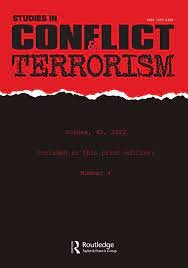Reports and articles

Roadblocks and revenues: the politics of passage
From Afghanistan and Yemen and from Mali to Somalia, checkpoints are central to dynamics of armed conflict, funding insurgents, driving violence and shaping governance by various types of armed actors, state and non-state alike. A new working paper series on roadblocks and revenues sheds lights on checkpoints in conflict contexts across the world and provides a new window into dynamics of authority and power.

“Never say never:” learning lessons from Afghanistan reviews
This “review of reviews” looks at how and what Western governments and international organisations have tried to learn from the intervention in Afghanistan.

Climate adaptation in no-man's land: bridging the conflict-climate gap
This paper examines climate change and armed groups, specifically the failure the address climate adaptation in areas beyond state control.

Taliban arms management practices
This paper argues that we should not see ‘political’ and ‘criminal’ groups as separate categories. Instead, we should envision a spectrum of motives and practices across all armed groups, regardless of how they are labelled.

Crime and communities: life under criminal group control
This paper argues that we should not see ‘political’ and ‘criminal’ groups as separate categories. Instead, we should envision a spectrum of motives and practices across all armed groups, regardless of how they are labelled.

Understanding agency in civilian-armed group interactions
This joint paper with ODI explores what we know (and what we don’t) about how ordinary people engage with armed groups.

Rethinking armed group control
Prevailing understandings of control – which focus on territorial dividing lines and acts of violence – are incomplete. Our paper argues that armed group control should instead be broken down according to how armed groups seek to influence populations.

Beyond greed: why armed groups tax
Based on a review of armed group taxation practices, this journal article argues that armed group motives go beyond revenue. It explores explanations related to ideology, legitimacy, institution building, control of populations, and the performance of public authority.

Beyond greed: why armed groups tax
Surveying the existing literature, this ICTD Working Paper argues that a deeper understanding of armed group taxation, the motivations behind it, and the implications it has for an armed group’s relationship with civilian and diaspora populations, as well as the broader international community.

Rebel rule of law: Taliban courts in the West and North-west of Afghanistan
Seizing on widespread dissatisfaction with formal justice, Taliban courts quickly settled disputes that the state and customary institutions could not. It also enabled the Taliban to infiltrate new areas and enforce a strict set of rules on the population.
